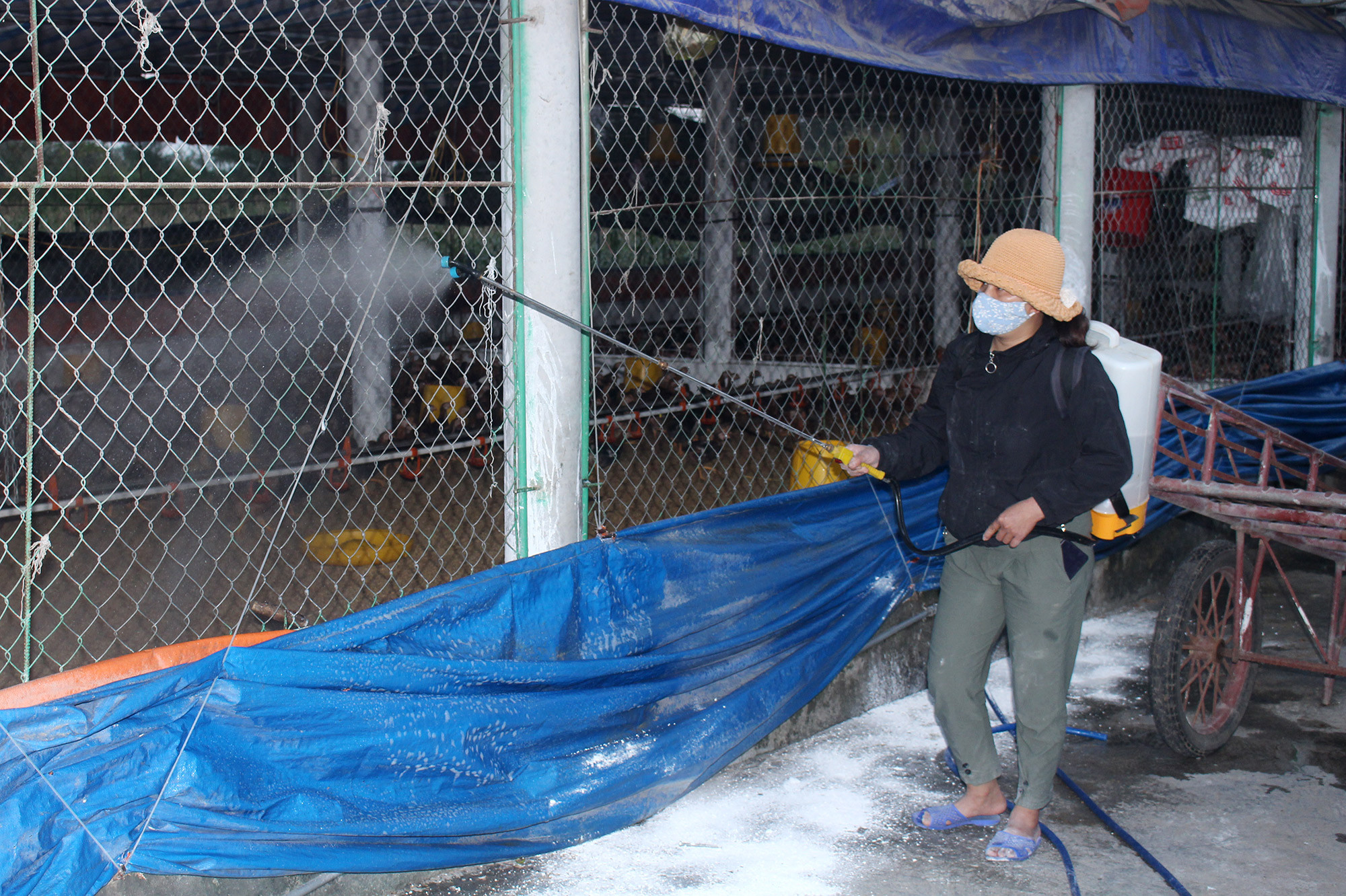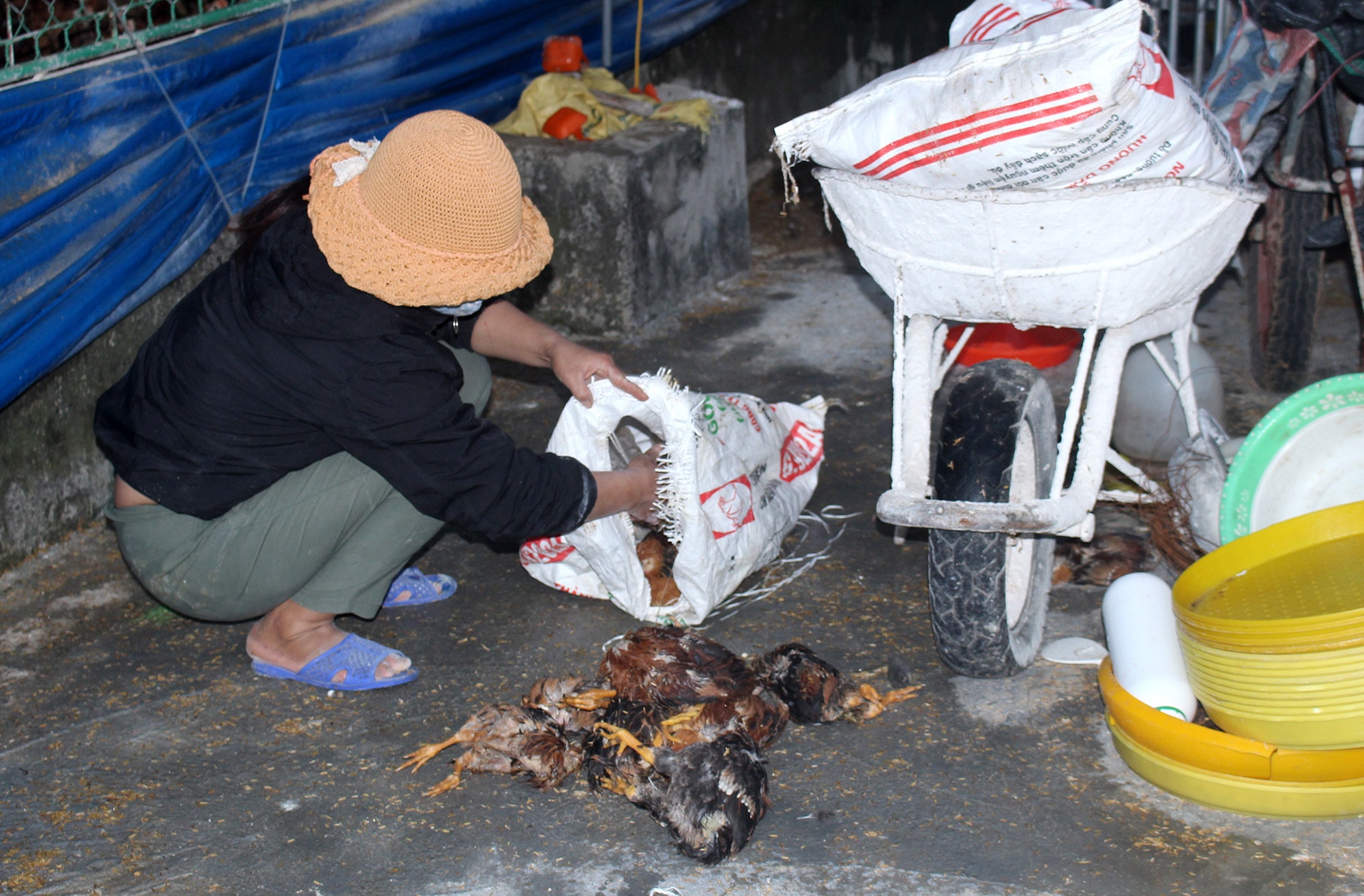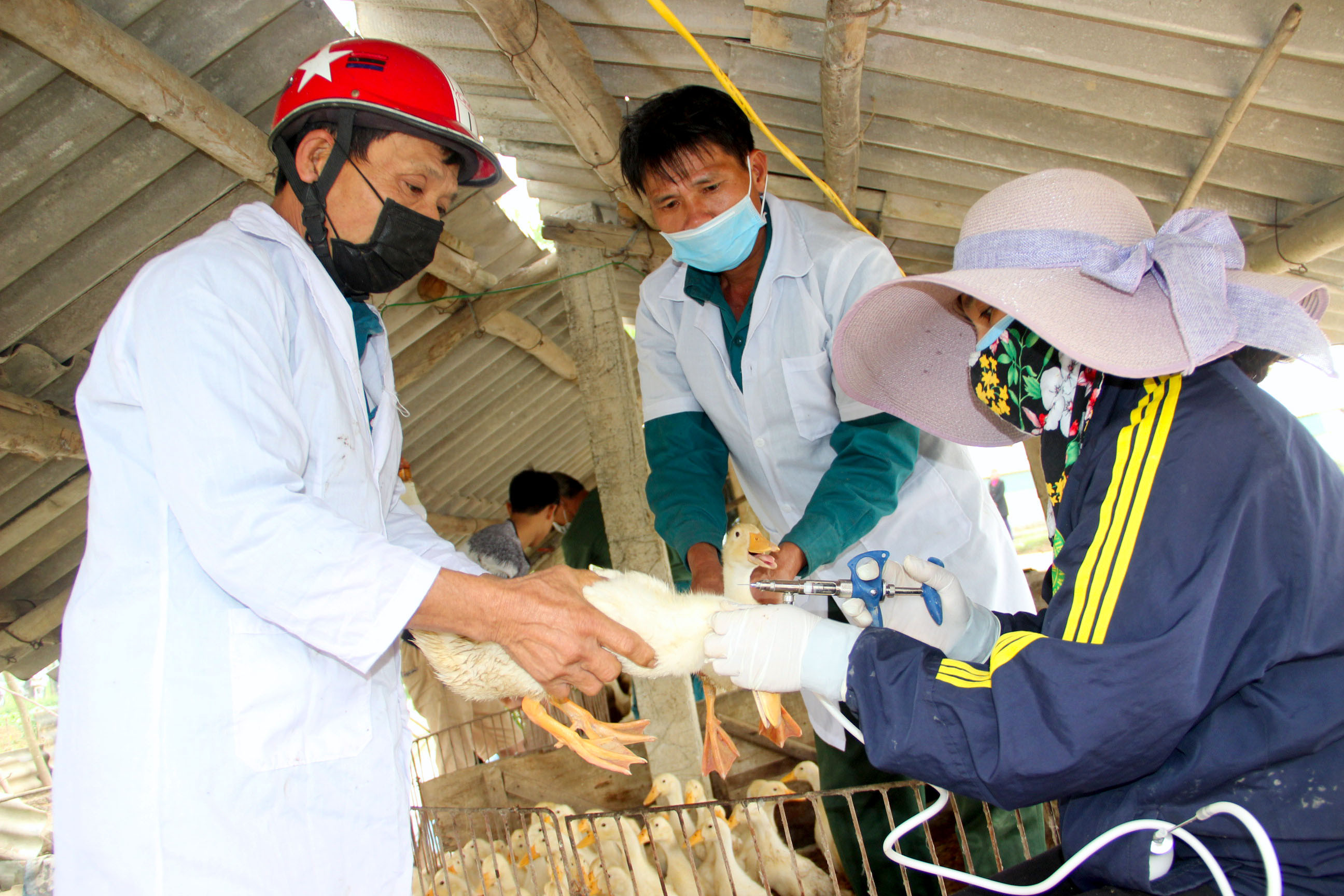Nghe An focuses on preventing and fighting avian influenza at the end of the year
(Baonghean.vn) - Nghe An has a poultry flock of over 26 million, many disadvantages in disease control in terms of transportation and trade, the control and prevention of avian influenza is always difficult. The end of the year is the time when there are many favorable conditions for disease outbreaks, this work must be given more attention.
Isolating the epidemic in a small area
Nghe An has many traffic routes, including roads, railways, airways, sea routes and inland waterways; animal trading activities take place regularly, there are many livestock markets; small-scale household farming accounts for the majority, over 70%.
In recent years, given the complicated developments of the epidemic,veterinary industryThere have been drastic efforts and solutions, and disease prevention work has been carried out promptly.
 |
| Chicken farm owner in Dien Chau sprinkles lime around the barn to disinfect. Photo: Phu Huong |
The first thing to do when an epidemic occurs is to direct the grassroots forces to immediately take samples of suspected cases for testing, determine the cause of the disease, and the type of disease; as soon as there are positive results, coordinate with local authorities to completely handle the outbreak in a small area, immediately destroy poultry flocks that test positive for avian influenza; organize sanitation and disinfection of epidemic and threatened areas twice a week in the first week and once in the next 2-3 weeks, and organize vaccination with CGC vaccine to surround the outbreak.
From a place where epidemics occurred frequently on a large scale, in recent years most outbreaks have been detected promptly and controlled on a small scale. In 2020, 11 avian influenza outbreaks occurred in the province in 4 districts: Quynh Luu, Yen Thanh and Hoang Mai town, Dien Chau, the number of poultry forced to be destroyed was 12,633, however, they were basically at the household scale and did not spread to the whole hamlet or commune as before.
Clinical surveillance is carried out regularly and continuously, especially for newly raised poultry flocks, poultry flocks in old epidemic areas, and high-risk areas. Due to timely information on the situationpoultry diseaseand propagate epidemic prevention and control solutions to people and authorities so that epidemic suppression work can be more effective.
 |
| Chickens died en masse in Dien Trung commune (Dien Chau) due to an epidemic. Photo: Phu Huong |
Poultry infected with highly pathogenic avian influenza have a short incubation period, usually from 01 to 03 days and can be longer depending on the virulence of the virus. Therefore, infected animals often die suddenly and without showing clinical symptoms. The mortality rate can reach 100% of the total flock within a few days.
Improve vaccination rates
To effectively prevent avian influenza, disease prevention is required.vaccineis currently considered one of the most important measures. According to the recommendations of experts, at farms and concentrated poultry farms, it is mandatory to vaccinate breeding poultry, commercial poultry, and poultry raised for meat with a rearing period of more than 45 days, except in cases where vaccination is exempted according to regulations.
For small-scale poultry raised in households, chickens, ducks, geese, quails and some other susceptible poultry must be vaccinated as determined by the local veterinary management agency. The vaccination area is determined to be an area with an old outbreak, a high-risk area. Accordingly, vaccination is organized according to the breeding process and periodically supplementary vaccination for new poultry flocks, poultry flocks that have expired their protective immunity or according to the instructions of the veterinary agency.
 |
| Veterinary staff vaccinate against H5N6 avian influenza. Photo: Xuan Hoang |
To date, the entire province has only administered 127,000 doses of vaccine during the autumn vaccination campaign. In addition to large farms that purchase vaccines themselves, Nghe An still has about 19 million poultry raised on a small scale among the people that are eligible for vaccination, and thus the vaccination rate is only 0.6%.
In order to increase the rate of vaccinated poultry, local authorities must resolutely direct administrative measures, focusing on punishing those who do not vaccinate, do not follow the local authorities' instructions on disease prevention and control, and absolutely do not create support records when avian influenza occurs; at the same time, continue to promote propaganda so that people understand the importance of vaccination and proactively coordinate implementation" - Mr. Ngo Duc Quynh shared.
 |
| To date, the whole province has only administered 127,000 doses of vaccine in the autumn vaccination campaign. Photo: Quang An |
Localities and people need to continue taking proactive measures to limit damage caused by this dangerous epidemic at the end of the year; in addition to vaccination, priority should be given to investing in implementing other biosafety measures in livestock farming.
In addition to causing rapid and massive deaths in livestock, avian influenza is also a very dangerous disease as the virus can infect and cause illness in humans. Some strains of the virus do not cause illness in poultry but can transmit illness to humans and cause death, such as the A/H7N9 influenza virus.

